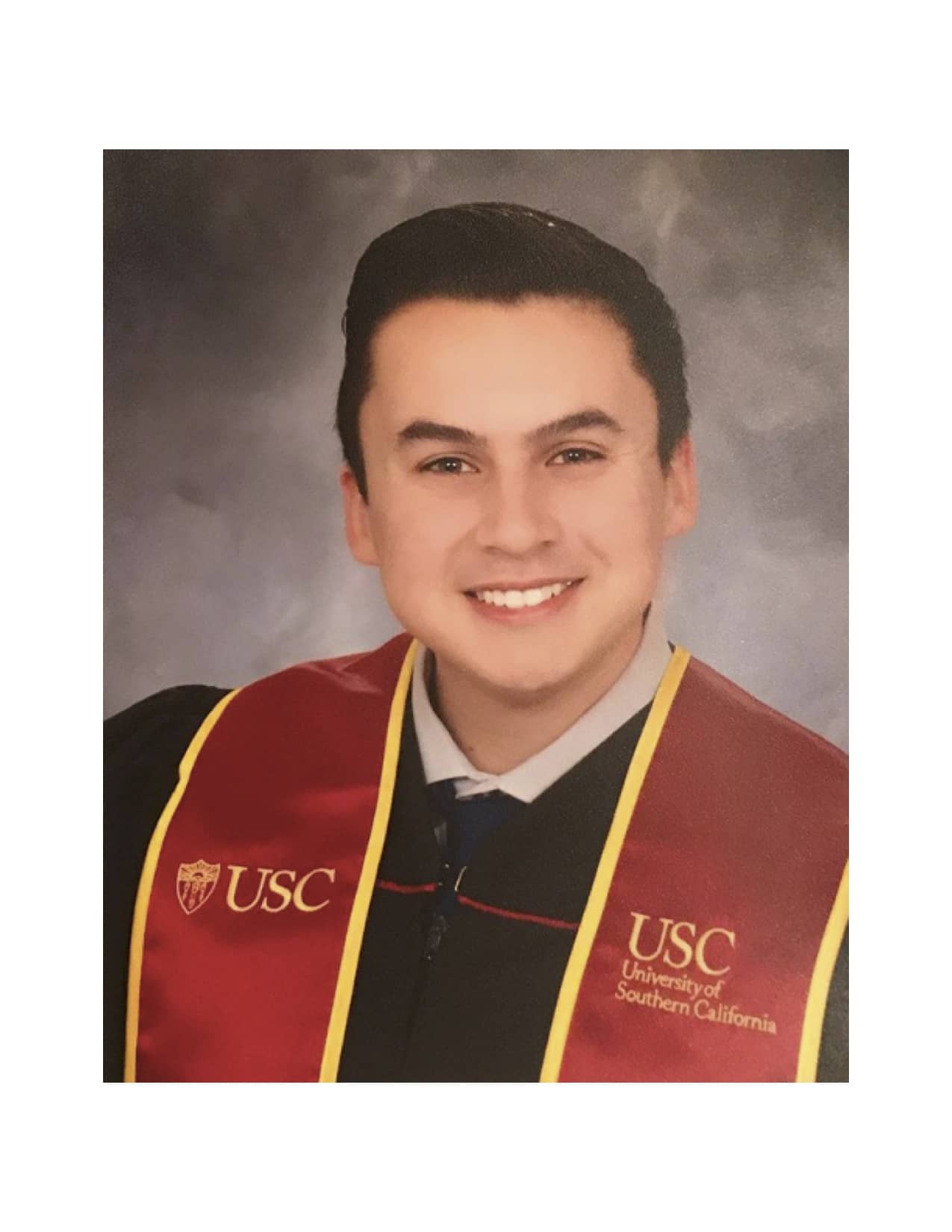[dropcap size=big]A[/dropcap]s a Latino student from a majority-minority community in the San Francisco Bay Area, graduating from the University of Southern California with my Bachelors’s degree was supposed to be a moment of promise for me, my family, and my entire community. A moment that would begin my career in public service, and allow me to expand opportunities for communities of color who are too often ignored or forgotten. But in March, that promise began to dim.
Learning that my commencement ceremony was postponed and that my final semester of college would be finished online, due to the COVID-19 pandemic, was heartbreaking. I am now looking toward a future I was not prepared for. I was looking forward to the last weeks of my college career, yet, all sense of normalcy was shattered. There wasn’t time to say goodbye to all my friends and professors who have supported me along my journey. But worst of all, my family did not get to see me, a first-generation Mexican-American kid with big dreams, walk the stage and graduate magna cum laude from one of the top private universities in the country.
Now with a country in turmoil, daunting challenges lay ahead as I must now seek employment in a time where budget cuts will likely delay my local government’s hiring processes and the dreams I had of serving my community.
I am not alone in this challenge. Over 3.8 million college seniors across the United States are graduating this year and we all will face the challenge of finding stable income in a faltering job market with no real plan for assistance from states or the federal government.
Millions of graduates are facing an uncertain future because of our government's failed policy response to a global pandemic. Their failure should not dictate our jobs or incomes for years to come. But a lack of initiative from policymakers so far indicates a dismal path ahead for the first-generation graduates of 2020.
Even as states begin to reopen, unemployment rates are the highest they’ve been since the Great Depression. Experts predict that the coronavirus will cause the worst recession in generations, resulting in millions of jobs permanently lost and significantly contracted opportunities for stable employment. For me and other first-generation college graduates, the recession-induced by COVID-19 will limit employment and leave us competing for jobs in an environment where opportunities are sparse, even for experienced professionals.
For every college graduate, the road ahead is daunting. But the challenges are even greater for graduates like me. I have a degree from a university and yet, after applying for several jobs and fellowships, I am anxiously scrambling to find employment, a position I never thought I would be in.
My reality, and that of every other first-generation graduate of color, is that we are entering the job market with less privilege, less social capital, and limited networks. This makes us far more susceptible to taking jobs that remain undervalued and underpaid, despite what our families have sacrificed to get us here and despite my hard work and achievements. But it’s not just the immediate future I worry about.
I was planning on using my experiences on political campaigns and policy research to support my community through a policy role in local government or in an elected official’s office.
Millions of graduates are facing an uncertain future because of our government's failed policy response to a global pandemic. Their failure should not dictate our jobs or incomes for years to come. But a lack of initiative from policymakers so far indicates a dismal path ahead for the first-generation graduates of 2020.
First-generation students and especially students of color were counting on leveraging the investments we made in our education into jobs that would help our families thrive and our communities grow. After watching my family struggle to recover from the Great Recession, I want to use my education to tailor policies that expand opportunity and access to economic mobility for underserved communities. And I was planning on using my experiences on political campaigns and policy research to support my community through a policy role in local government or in an elected official’s office.
Now, current economic conditions may prevent first-generation graduates from helping our families or our communities at all. My community in San Mateo County, for example, has lost over 13 percent of its jobs since April 2019, mostly due to the COVID-19 recession, and government budgets have been severely cut, which has brought hiring to a halt.
With graduation here, state and local policymakers need to step up for first-generation college graduates and graduates of color by guaranteeing income through both immediate cash payments that help us weather the current storm and sustainable jobs that allow us to contribute to the future prosperity of the country.
There are solutions, but once again, our government is failing us. College graduates remain neglected in federal policy responses. The Congressional CARES Act excludes most college students by disqualifying anyone claimed as a dependent from receiving a stimulus check.
And, while some may argue that college graduates, as newcomers to the job market, do not need stimulus help as much as veteran workers who already carry financial commitments such as rent and car payments, this argument does not account for the reality that failing to support the emerging workforce today will devastate our economy tomorrow. Research shows that college students who graduate during a recession earn 10% less during the first seven years after graduation due to graduates taking jobs that underpay their skillsets. Investing in us now is necessary not just for short-term sustainability, but for our long-term integration into the workforce.
As the leaders and innovators of tomorrow, the advancement of our families and communities depend on our success after graduation.
With graduation here, state and local policymakers need to step up for first-generation college graduates and graduates of color by guaranteeing income through both immediate cash payments that help us weather the current storm and sustainable jobs that allow us to contribute to the future prosperity of the country. It has been painful enough that I and my family could not enjoy the usual celebrations of graduation. However, our public officials should at least propagate policy solutions that support the long-term integration of first-generation graduates into the workforce.
As the leaders and innovators of tomorrow, the advancement of our families and communities depend on our success after graduation. A lack of meaningful and inclusive policy response to this pandemic should not be what determines the long-term outcomes of our futures.
This story was written by a recent graduate of USC under the guidance of Eliza Moreno as part of L.A. Taco’s longstanding commitment to being a platform available to first-time writers. Expect more engaging stories from new voices in journalism on a weekly basis.







